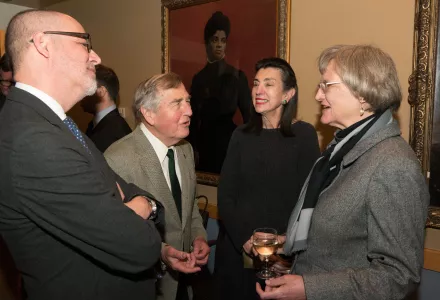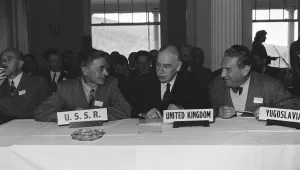
In Harvard’s traditional Morning Prayers ushering in the current academic year, Harvard President Drew Gilpin Faust reflected on “a curious question” posed to her in 2007 after her appointment as president was announced: What did being a historian have to do with being president of Harvard? Faust recalled being surprised by the question “not just because historians have been successful presidents of lots of things, including Harvard—but because studying history seemed to me to be in many ways the ideal training for leadership.”
This was the same message she carried on January 30 when she joined the Belfer Center’s Applied History Project Faculty Working Group for dinner. Faust, who regularly cites her training in history as her “professional identity” and her “field of scholarly inquiry for many decades,” asks herself a recurrent question: “I don’t know if I became a historian because I think the way I do, or if I think the way I do because I became a historian.” Whatever the answer, Faust felt at home in a room full of historians at the dinner. She participated in order to learn about the Project’s mission—the explicit attempt to illuminate current choices and challenges by analyzing precedents and analogues—and to discuss the value of history in life and leadership more generally.
Nearly a decade into her presidency, Faust continues to shine as a historian’s historian. Having written award-winning histories of Civil War-era America, she now applies historical insights to leading America’s oldest university. At the dinner, Faust reinforced the argument she set forth in her Morning Prayers from August: “History, like leadership, is about change, about understanding what makes change happen, about who embraces change and why, and about who resists it and how.”
“When someone presents me a problem,” Faust said, “I want to know: Where did it come from? What’s the history of it? How did this originate? What’s the backstory?” Subscribing to the historian’s view that almost nothing is new under the sun, she said, “I always feel that a conflict in the present, an opportunity in the present, is so shaped by where it came from. I operate very much as a historian, recognizing that issues don’t just drop out of the sky.”
Kapur, Arjun, "Harvard President Faust Links History and Leadership." Belfer Center Newsletter. Belfer Center for Science and International Affairs, Harvard Kennedy School. (Spring 2017).




